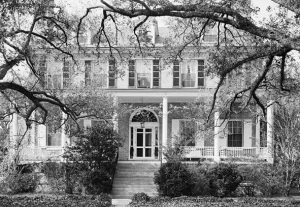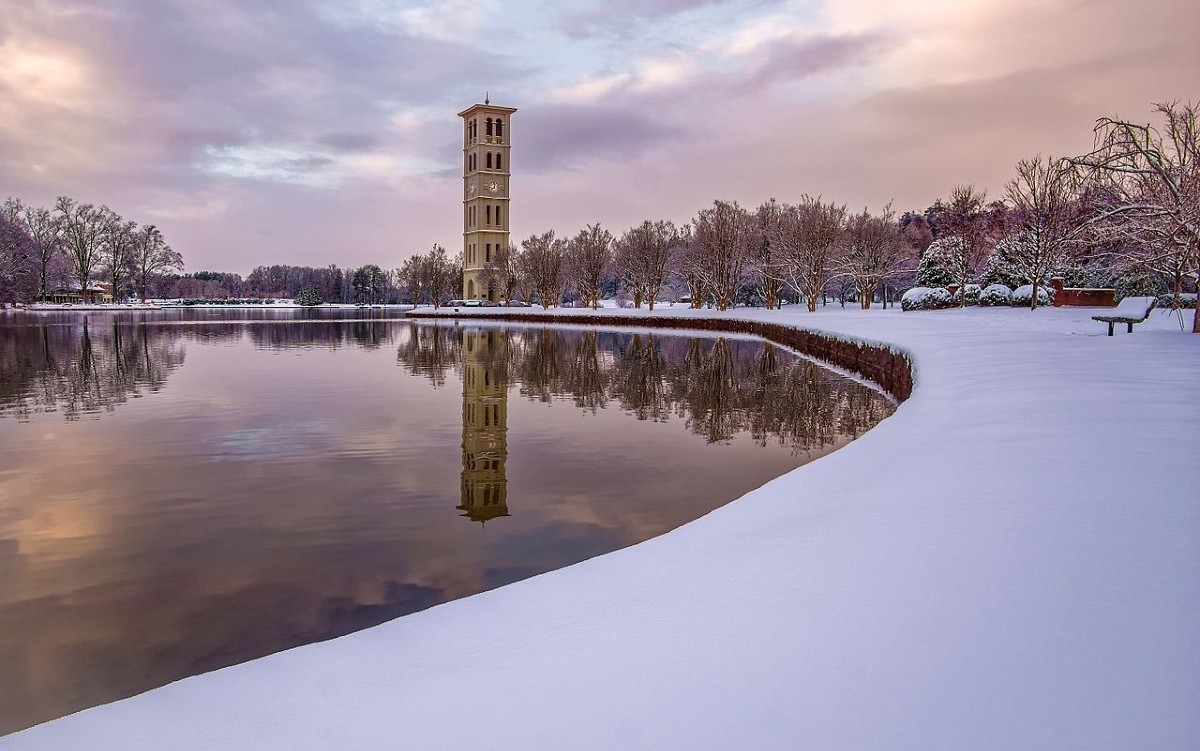INSIDE ISSUE 18.51 | Dec. 20, 2019
 BIG STORY: Columbia mulls ban on naming property for living people
BIG STORY: Columbia mulls ban on naming property for living people
NEWS BRIEFS: PSC solar decision to bleed into 2020, Matthews honored, more
COMMENTARY, Brack: Impeachment having impact in S.C. politics
SPOTLIGHT: S.C. Education Association
FEEDBACK: State government fumbles to improve poverty outcomes
MYSTERY PHOTO: Wonder what the story behind this is?
S.C. ENCYCLOPEDIA: Furman University, chartered 169 years ago today
Columbia mulls ban on naming property for living people

By Lindsay Street, Statehouse correspondent | A push to name a state-owned building after a convicted former Charleston lawmaker could finally spur Columbia to pass a law banning the practice of naming public property after living people.
In an odd twist, the man behind the push would be fine with that. After all, Charleston Democratic Rep. Wendell Gilliard has previously introduced bills to not name public buildings after living people.
“I would hope it (this will) make (lawmakers) take a look at it,” Gilliard said.
This fall, Gilliard sent a letter to South Carolina State University in Orangeburg and urged the school’s board to consider naming a building after former Sen. Robert Ford, a Democrat from Charleston. In 2015, Ford pleaded guilty to several misdemeanor ethics violations and resigned his seat.
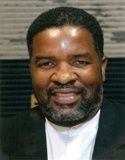
Gilliard said this week Ford “deserving” of such an honor, despite the conviction.
“Robert Ford, compared to a lot of other people with public buildings named after them, is a saint,” he said, acknowledging that the request might seem at odds with past positions.
A renewed push
In recent years, there have been several attempts to alter South Carolina codes to prohibit the practice of naming public property after people. Gilliard and Lexington Republican Rep. Todd Atwater introduced a bill in 2011, and Lexington Republican Sen. Katrina Shealy introduced a bill in 2013. Both efforts stalled in committee.
Prefiled this month, Senate Bill 893 would ban naming state-owned property after any elected or appointed public official until at least five years after his or her death. Shealy is pushing the bill along with Richland Democratic Sen. Dick Harpootlian. One embarrassing reason: the issue is fresh on the minds of lawmakers after two roads named after a state Department of Transportation (DOT) commissioner were renamed earlier this year.

“We ought to reserve the naming of public institutions for people who are dead,” Harpootlian said. “Their public service has ended and, after they’re gone, you’re not honoring what they could do for you but for what they have already done for you.”
Their legacy is also unlikely to change, he added.
In August, John Hardee was convicted of a federal crime for telling a contractor to delete emails amid an investigation into potential bribery. Then, he was arrested and convicted of soliciting a prostitute. He had two roads named for him, one leading to the Columbia airport and one in his hometown of Loris, according to a DOT spokesman. Both roads were renamed. It’s not the first time, and some senators say it won’t be the last.
Currently, the Transportation Department has 101 roads listed as named for people, living and dead. Municipal and county-owned roads are not included in that list. Shealy said it could be as many as 1,000.
“There’s pretty good evidence why we shouldn’t do it,” Shealy said. “It’s a ridiculous thing to do. I don’t think you should do it.”
‘We wouldn’t even be having this discussion’
But if Columbia does not pass such a ban, Gilliard said the question becomes: Is it preferable to have public property named after living and dead “racists,” than to have it named after a man convicted of ethics charges?
“When you look what Robert Ford has done for the state of South Carolina, you can’t take that away. He was a bridge builder. He was a trailblazer,” Gilliard said. “But if (lawmakers) had stuck to my first bill, we wouldn’t even be having this discussion.”
Shealy said she didn’t understand Gilliard’s reasoning. She said allegedly racist comments shouldn’t prevent a person from having property named after them, but a conviction of a crime should be.
- Have a comment? Send to: feedback@statehousereport.com
PSC solar decision to bleed into 2020, Matthews honored, more

By Lindsay Street, Statehouse correspondent | The holiday season is brewing a 2020 battle over solar energy after an order from the state’s utility regulator has sparked outrage from renewable energy advocates.
The battle has led the state Regulation of Public Utilities Review Committee to convene 2 p.m. Dec. 20 to discuss an email between a conservation nonprofit and a commissioner. See agenda here.

Conservation Voters of South Carolina Executive Director John Tynan and Public Service commissioner Tom Ervin have been at odds over a Dec. 9 order that kept utility contracts with solar providers to 10 years, and authorized rate reduction of roughly 33 percent. Today’s meeting, which Tynan described as “procedural,” will deal with a Dec. 13 email from Ervin that refuted allegations the nonprofit made regarding the decision.
Before the order came out, solar and conservation advocates called any big rate reduction a “doomsday” scenario for the industry in the state. That was reiterated in the Dec. 13 email. In four-paragraph response, Ervin denied that the PSC “slashed rates.” Ervin wrote a concurring opinion on how the order complied with state law and would not hurt the industry on page 102.
“The fact is that a ten-year contract term better protects both ratepayers and small QF solar developers by ensuring that avoided cost rates reflect the actual costs of generating electricity,” he wrote.
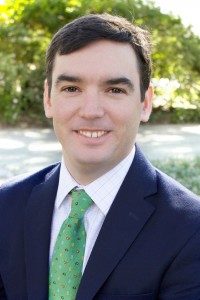
Tynan said the opinion does not reflect reality for the solar industry.
“From talking with our partners in the solar industry they are looking at not building another large solar project in the state as long as this ruling is in place,” he told Statehouse Report this week.
CVSC held a town hall Monday to allow lawmakers and about 60 residents in the state to voice their “frustration” over the ruling. Lawmakers who attended included Democratic Rep. J.A. Moore, Republican Sen. Sandy Senn, and Republican Rep. William Cogswell, all of Charleston.
Tynan said his group and other solar advocates will make fair contracts for renewable energy a focus in 2020.
“We will continue to shed the light on the Public Service Commission and how its decisions are undermining the Energy Freedom Act because voters and legislators need to know,” Tynan said.
- Previous coverage of the decision: Lawmakers express frustration with commission, float changes in 2020.
- Related: Lawmakers will review applicants to the Public Service Commission Jan. 7-9. Read agenda.
In other S.C. news:
![]() Matthews honored for service. A portrait of longtime Bowman Democratic Sen. John Matthews now hangs in the Statehouse in honor of his service. Matthews is the state’s longest serving black legislator. Read more.
Matthews honored for service. A portrait of longtime Bowman Democratic Sen. John Matthews now hangs in the Statehouse in honor of his service. Matthews is the state’s longest serving black legislator. Read more.
Rally to end gerrymandering Jan. 14. A rally to end gerrymandering will greet lawmakers when they reconvene in Columbia Jan. 14. According to Fair Maps SC Coalition, only 10 percent of the General Assembly’s 170 seats are competitive. More info.
Bad drunk driving record. About a third of all fatal car wrecks in South Carolina are related to drunk driving, according to federal data. The state has the fifth worst drunk driving rate in the nation. Read more.
Green mural unveiled at S.C. federal courthouse. U.S. District Judge Richard Gergel on WHEN unveiled Jonathan Green’s mural “Breath of Freedom.” It depicts a moment during the renowned Briggs v. Elliott school case that was heard in downtown Charleston 1951 and influenced the landmark federal ruling in Brown v. Board of Education that desegregated public schools nationwide. Read more.
Most U.S. metros lags in opportunity for kids of color. Most white children in the United States live in neighborhoods with high levels of opportunity, while most black and Hispanic children live in ones with low opportunity, according to Child Opportunity Index 2.0 from Brandeis University. Read more.
McMaster donates $315k in leftover contributions. Gov. Henry McMaster donated $315,000 from the $1 million he had leftover from his January inauguration to an animal shelter, a sexual crimes recovery center, veterans’ groups and a nonprofit that improves the Governor’s Mansion. Read more.
Charleston has worst plastic pellet pollution on East Coast. A University of Texas Marine Science Institute at Port Aransas researcher has found that Charleston has the highest measured concentration of spilled plastic pellets anywhere outside of the Gulf of Mexico. Read more.
- Previous coverage: State encourages more plastic-pellets transporters despite spill.
McMaster appoints Cohn to lead SCETV. Gov. Henry McMaster has appointed Richard Cohn Sr. of Columbia to serve as chairman of the SCETV Commission. Cohn, founder and chairman of the Columbia-based Cohn Corporation, has more than four decades of experience in the construction and development industry.
- Previous opinion: Drama does not belong on SCETV board.
- Have a comment? Send to: feedback@statehousereport.com
Impeachment having impact in S.C. politics

By Andy Brack, editor and publisher | The harsh crescendo of Washington bullheadedness seems to be trickling down into politics across South Carolina.
 The impeachment of President Donald Trump may be exacerbating divides in the electorate while also motivating partisans to do more in new ways. Others say the whole thing is a nothingburger.
The impeachment of President Donald Trump may be exacerbating divides in the electorate while also motivating partisans to do more in new ways. Others say the whole thing is a nothingburger.
Regardless, be ready for more tribalism — talking, planning, postulating and politicking among people with the same general worldview — and less listening to people with different viewpoints. Some elected officials, emboldened by Trump’s never-back-down coarseness — may have a harder time getting things done in the Palmetto State because their rhetoric will narrow opportunities for compromise.
But impeachment may bring another impact. While people inclined to stay out of political conversations have calcified in their views, Charleston activist Charlie Smith observes “the shock of what it has done to the rest of us has caused us to get off our butts and do something.”
The swirl of negativity out of Washington has been a pill of anti-complacency. Impeachment, Smith said, seems to be motivating people to show up more at local political events by “pulling people out who are speaking out more on issues who have never spoken before.”
S.C. Sen. Brad Hutto, D-Orangeburg, said he didn’t believe Trump’s impeachment would have much of an immediate impact among voters because it may not change many people’s minds. But just as the 2018 congressional elections ended up being a referendum on Trump that flipped the U.S. House to Democratic control, the impeachment could have a slow burn effect for the 2020 election.
“Trump himself is a lightning rod and should increase voter turnout in the 2020 general election and Democratic presidential primary” in February, Hutto said.
Impeachment seems to have hardened views of colleague Paul Campbell, a GOP senator from Berkeley County.
“President Trump’s impeachment is stupid as there are no laws broken, no high crimes or anything impeachable.” he said. “We have wasted so much time on what could have been legislation for the peoples’ good.”
In general, red South Carolina is ignoring the shenanigans going on in Washington and is moving forward, he said.
“The improved economy in South Carolina is a credit to President Trump. The low unemployment rate is his doing with the tax cuts, job creation, getting folks off welfare and food stamps, reducing red tape on regulations, and in general improving our USA. This and impeachment will have a positive impact on the 2020 election for Republicans.”
Longtime Republican consultant Chip Felkel of Greenville isn’t so sure. Long frustrated by Trump’s volatility and lack of smart governance, Felkel has been a voice for conservatives to moderate shrill voices and work together to solve problems.
“Let’s face it, like the rest of the country, we see a lot of tribalism and hyper-partisanship here already. The process hasn’t moved people’s opinions too much. It was anticipated he would be impeached and it’s anticipated he won’t be convicted.
“It would only really affect us here if he were to be convicted — which right now seems unlikely – and if so, only in terms of the ties to the White House by Gov. Henry McMaster and U.S. Sen. Lindsey Graham.”
Still, Trump’s presidency is making politics everywhere more difficult.
“It’s fair to say this presidency has affected politics everywhere in terms of what was once unheard of, now being common,” Felkel said. “Our politics, here and elsewhere, are much coarser, harsher and hard-edged.
“His style, which many disregard as just Trump being Trump, has certainly contributed to the toxicity. A lot of people want to ignore, forgive or just accept Trump’s ‘Archie Bunker’ style by looking at the economy or what they see as him standing up to other countries.
“That works fine as a CEO of your own company, but I am not sure it’s the best recipe for being the leader of the free world.”
As state lawmakers return to Columbia, let’s hope they take a flask of holiday goodwill and keep it in their pockets. Pull it out when things get testy at the Statehouse in the months ahead. Remember, you work for us and we want progress, not regress.
Andy Brack is editor and publisher of Statehouse Report. Have a comment? Send to: feedback@statehousereport.com.
The South Carolina Education Association
 The public spiritedness of our underwriters allows us to bring Statehouse Report to you at no cost. This week’s spotlighted underwriter is The South Carolina Education Association(The SCEA), the professional association for educators in South Carolina. Educators from pre-K to 12th grade comprise The SCEA. The SCEA is the leading advocate for educational change in South Carolina. Educators in South Carolina look to The SCEA for assistance in every aspect of their professional life. From career planning as a student to retirement assessment as a career teacher, The SCEA offers assistance, guidance, and inspiration for educators.
The public spiritedness of our underwriters allows us to bring Statehouse Report to you at no cost. This week’s spotlighted underwriter is The South Carolina Education Association(The SCEA), the professional association for educators in South Carolina. Educators from pre-K to 12th grade comprise The SCEA. The SCEA is the leading advocate for educational change in South Carolina. Educators in South Carolina look to The SCEA for assistance in every aspect of their professional life. From career planning as a student to retirement assessment as a career teacher, The SCEA offers assistance, guidance, and inspiration for educators.
- Learn more: TheSCEA.org
- Have a comment? Send to: feedback@statehousereport.com.
State government fumbles to improve poverty outcomes
To the editor:
![]() South Carolina makes little effort to support accountability. Networking is critical. Too many S.C. state agencies. Overlapping services are not documented.
South Carolina makes little effort to support accountability. Networking is critical. Too many S.C. state agencies. Overlapping services are not documented.
Our state makes no effort to provide an inter-agency technology system proper documentation, a case management approach for assisting families or networking for responsible outcomes.
Tragic indeed, it is nearly 2020, and the right hand does not know what the left hand is doing.
Implementing best practices is required for developing responsible budgets, accountable leadership and improved outcomes.
— Cyndie Geries, Hartsville, S.C.
Tell us what you think — sound off!
We love hearing from our readers and encourage you to share your opinions. But you’ve got to provide us with contact information so we can verify your letters. Letters to the editor are published weekly. We reserve the right to edit for length and clarity. Comments are limited to 250 words or less. Please include your name and contact information.
- Send your letters or comments to: feedback@statehousereport.com
Wonder what the story behind this is?
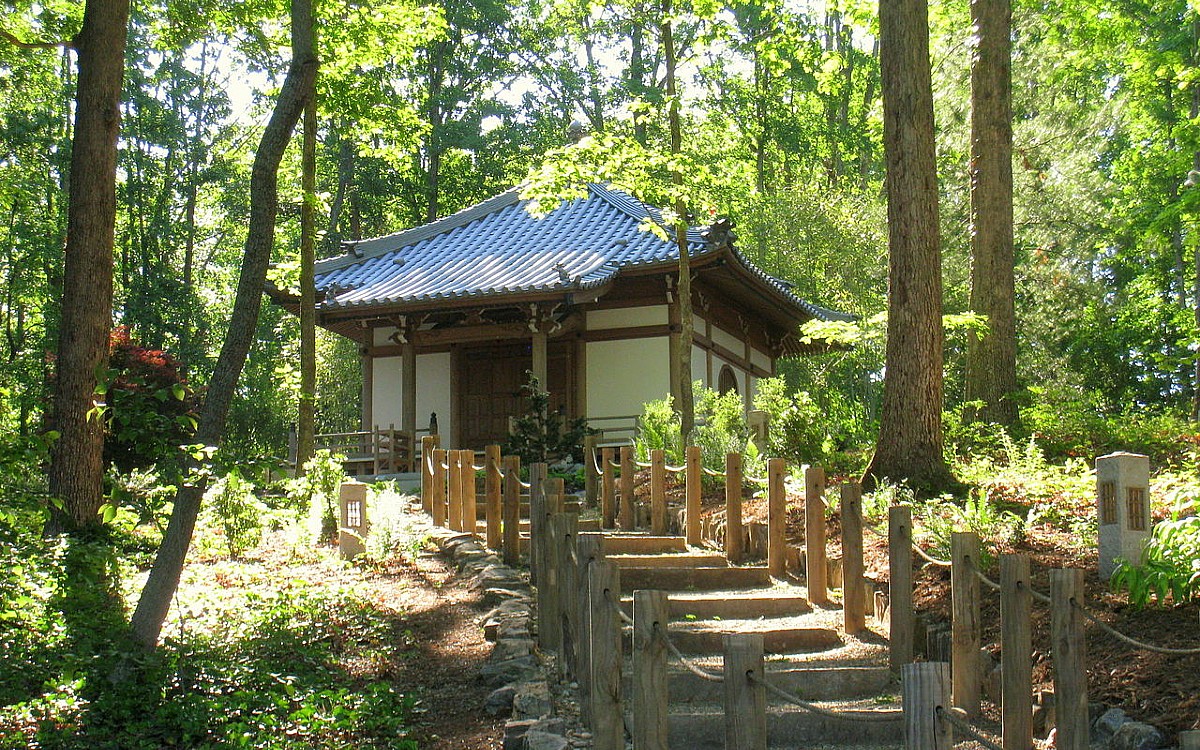
You don’t normally see something with an Asian design in South Carolina, but this is located somewhere in the Palmetto State. Send your best guess to feedback@statehousereport.com. And don’t forget to include your name and the town in which you live.
Our previous Mystery Photo
Our Dec. 13 image, “What’s the story of this house?” shows Kershaw County’s Mulberry Plantation, the home of James and Mary Boykin Chesnut. The mystery proved to be more difficult than normal as only four people correctly guessed what it was: George Graf of Palmyra, Va.; Vic Carpenter of Lugoff; Jay Altman of Columbia; and Don Clark of Hartsville. A big hat tip to each of you!
Graf said the house was “nationally significant in the area of American literature for its association with Mary Boykin Chesnut’s remarkable first-hand account of Southern society during the Civil War. Her war-time diary, acknowledged as the most important piece of Confederate literature, is also recognized for its contributions to our understanding of southern culture and society.”
Altman added, “Mary Boykin Chesnut was the author of ‘A Diary from Dixie,’ which recounted her experiences during the Civil War (or, depending on who you are talking to, the War Between the States or the War of Northern Aggression)”
Graf also shared that according to an article by Ned Harrison at Roanoke.com, “she was called the diarist, the grande dame, the confidante of the Civil War. She moved in the highest circles, and was personally acquainted with Varina Davis, wife of the president of the Confederacy. … She brought the war to life as did no other of the time. For her writings and her insight at the most critical time in the history of the United States, she is a heroine of the Confederacy.”
She was born to Southern aristocracy: Her father was Stephen Decatur Miller, a lawyer and later governor of South Carolina and one of its congressmen. The family were wealthy plantation owners.
Happy holidays, all!
- Send us a mystery: If you have a photo that you believe will stump readers, send it along (but make sure to tell us what it is because it may stump us too!) Send to: feedback@statehousereport.com and mark it as a photo submission. Thanks.
S.C. ENCYCLOPEDIA
Furman University, chartered 169 years ago today
S.C. Encyclopedia | On December 3, 1825, the South Carolina Baptist Convention (SCBC) elected a board to organize an institution to train young men for the ministry. The Furman Academy and Theological Institution was established the following year. It officially opened in January 1827 and was named in honor of Richard Furman, a Baptist minister and education pioneer.
Originally located in Edgefield, Furman provided both a “literary” and a theological curriculum. Few students enrolled, however, and the school teetered on insolvency during its first twenty-five years. Furman was closed for a brief period (1834–1837), moved twice (to the High Hills of Santee near Stateburg, 1829–1834; to Fairfield District near Winnsboro, 1837–1850), and had an average enrollment of only ten students.
On December 20, 1850, the state legislature chartered “The Furman University.” Classes were held in downtown Greenville until the first building, a two-room wooden cottage, could be erected on a new fifty-acre campus overlooking the Reedy River. The institution was composed of an academic department that offered college-preparatory studies (discontinued in 1916), a collegiate department comprised of six “schools,” and a theological department—with graduate studies—that provided justification for Furman’s designation as a university. The theological department operated until 1859, when it separated to become the Southern Baptist Theological Seminary, which moved to Louisville, Kentucky, in 1877.
Like most southern institutions, Furman was disrupted by the Civil War. President James C. Furman was a member of the Charleston Secession Convention, and after the Civil War began, most students and several faculty members enlisted in the Confederate forces. The university closed in the fall of 1861 and did not reopen until the winter of 1866, although at the time there was no money even to print a catalog.
Financial problems continued to haunt the school, and near bankruptcy prompted reorganization in 1881. At the turn of the century, Greenville’s textile prosperity, along with effective and academically rigorous presidents, brought a surge of northern philanthropy to the school. In December 1924 Furman was accredited by the Southern Association of Colleges. Five days later the president learned that the university had been named one of the collegiate beneficiaries of the Duke Endowment. A watershed in the university’s history, this bequest kept Furman alive during the Great Depression. In 1936, with Furman still $170,000 in debt, school officials sought additional funding from the General Education Board of the Rockefeller Foundation to sponsor the Greenville County Council for Community Development. Among other activities, this organization coordinated participation of Furman faculty and students in novel university-community undertakings, including a Citizens Education Center and several teacher-training institutes.
Furman’s growth was paralleled by that of the Greenville Woman’s College. Initially called the Greenville Baptist Female College, the Woman’s College was established in 1854 by the SCBC and governed by Furman’s trustees until 1908. The school had high aspirations and inspired teaching but had no endowment. The Woman’s College and Furman undertook joint fund-raising campaigns, and their students participated in shared activities. While its extensive music and education programs helped make it the second-largest women’s college in the state (Winthrop University was larger), it could not survive the economic chaos of the 1930s, when it gradually became the coordinate women’s college of Furman.
In 1950, with highway projects threatening to divide Furman’s property and with enrollment at record levels, the university’s trustees purchased approximately nine hundred acres for a new campus six miles north of downtown Greenville. Groundbreaking took place in 1953, men moved to the new campus in 1958, and women joined them in 1961. At the urging of Dean Frances Bonner, incoming president Gordon Blackwell, and the rest of the university community, the board of trustees affirmed its support of integration in December 1964, despite protests from the state Baptist Convention. The school was officially integrated a couple of months later. In 1973, after trying to attain one for more than three decades, Furman was awarded a Phi Beta Kappa chapter.
Throughout the twentieth century Furman maintained a balance between intellectual rigor and denominational priorities. This became increasingly difficult in the 1980s with the rise of conservative evangelicals within the SCBC. For that reason, Furman’s trustees voted to sever all ties with the SCBC on October 15, 1990; the SCBC officially recognized that break on May 15, 1992. The potential financial consequences of this decision were significant for Furman, but the institution’s liberal-arts focus remained unchanged.
Notable Furman graduates include John B. Watson, one of the founders of behavioral psychology; Charles Hard Townes, a Nobel laureate in physics; and Richard Riley, a governor of South Carolina and U.S. secretary of education.
— Excerpted from an entry by A Scott Henderson This entry may not have been updated since 2006. To read more about this or 2,000 other entries about South Carolina, check out The South Carolina Encyclopedia, published in 2006 by USC Press. (Information used by permission.)
ABOUT STATEHOUSE REPORT
Statehouse Report, founded in 2001 as a weekly legislative forecast that informs readers about what is going to happen in South Carolina politics and policy, is provided to you at no charge every Friday.
Meet our team
- Editor and publisher: Andy Brack, 843.670.3996
- Statehouse correspondent: Lindsay Street
 Buy the book
Buy the book
Now you can get a copy of editor and publisher Andy Brack’s We Can Do Better, South Carolina! ($14.99) as a paperback or as a Kindle book ($7.99). . The book of essays offers incisive commentaries by editor and publisher Andy Brack on the American South, the common good, vexing problems for the Palmetto State and interesting South Carolina leaders.
More
- Mailing address: Send inquiries by mail to: 1316 Rutledge Ave., Charleston, SC 29403
- Subscriptions are free: Click to subscribe.
- We hope you’ll keep receiving the great news and information from Statehouse Report, but if you need to unsubscribe, go to the bottom of the weekly email issue and follow the instructions.
- © 2019, Statehouse Report, a publication of City Paper Publishing, LLC. All rights reserved.
- Read our sister publications: Charleston City Paper (every Wednesday) | Charleston Currents (every Monday)


